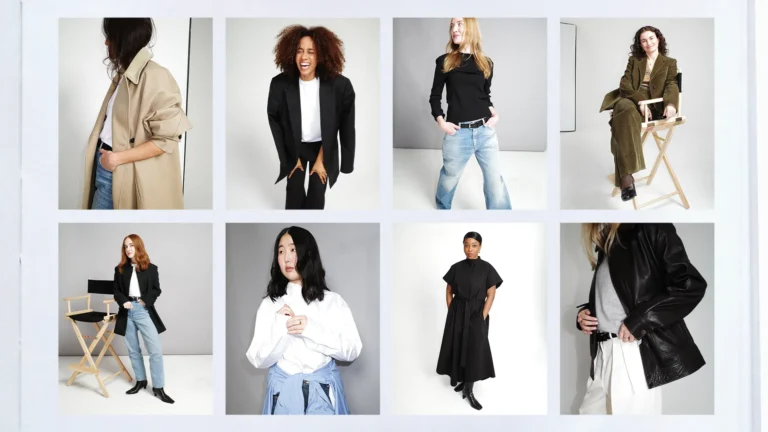
When it comes to the world of hair extensions or wigs business , understanding hair grades is crucial, particularly for anyone involved in the hair business or those using extensions for personal use. The term “hair grade” refers to the quality and characteristics of hair, and recognizing these distinctions can help you make informed decisions, ensuring you avoid purchasing hair that does not meet your expectations. Below, we will unpack the four primary types of hair grades you should be aware of: Virgin Hair, Remy Hair, Human Hair, and Synthetic Hair. Understanding these categories will empower you to choose the right product for your needs.
-
Virgin Hair
Virgin hair is considered the highest quality grade available on the market. This type of hair has not undergone any chemical processing or treatments, including dyeing or perming. Virgin hair is often sourced from a single donor and retains its natural cuticle, which lays in a single direction, reducing tangling and matting, virgin hair is the top grade hair to make Jewish wigs, all wigs are made of virgin hair at Jewish wigs factory.
Because of its origin, virgin hair can often be styled and colored without significant risk of damage, making it a versatile option for those seeking natural appearance and longevity. However, virgin hair can be among the most expensive options available. If you are willing to invest in quality, virgin hair is undoubtedly a sound choice and will last longer than lower-grade hair.
-
Remy Hair
Remy hair is another high-quality option that is often confused with virgin hair. While Remy hair may be sourced from multiple donors, it is still collected in a manner that maintains the cuticle layer intact and aligned in one direction. This alignment reduces tangling and provides a natural look and feel.
Remy hair can be either virgin, if it hasn’t been processed, or it can be colored and treated post-collection. As a result, Remy hair offers more versatility in terms of color options and styles compared to virgin hair. Although it is less expensive than virgin hair, it maintains excellent quality, making it a popular choice for many users.
-
Human Hair
Human hair refers to hair that comes from actual human beings, as opposed to synthetic alternatives. However, the term “human hair” encompasses a wide range of quality. Some human hair may be of a lower grade, lacking the natural cuticle, which leads to tangling and shorter lifespan. While it is usually less expensive than Remy hair and virgin hair, the experience of using low-grade human hair can be disappointing.
When purchasing human hair, it is essential to inquire about the processing and sourcing to ensure you’re receiving a quality product. Always ask about the hair’s origins, whether it has been chemically treated, and how much maintenance it may require.
-
Synthetic Hair
Synthetic hair is made from artificial fibers, allowing it to mimic the look and feel of natural hair without the high price tag. This hair grade is popular among budget-conscious consumers, but quality can vary significantly from one product to another. High-quality synthetic hair can be styled with heat and has a natural appearance, while lower-quality synthetic hair can look shiny, unnatural, and can’t withstand styling tools.
One of the key benefits of synthetic hair is its resistance to humidity and frizz, offering a consistent look regardless of weather conditions. However, unlike human hair, synthetic options cannot be dyed or permanently styled, limiting versatility.
How to Choose the Right Hair Grade
When selecting hair extensions, consider the following tips to ensure you choose the right hair grade for your needs:
Budget
Understand your budget and how much you’re willing to invest. Higher grades like virgin or Remy hair will cost more, but they tend to provide a better experience and longevity.
Lifestyle
Consider your lifestyle and how often you’ll be wearing the extensions. If you choose to wear them daily, investing in higher-quality hair may save you money in the long term by reducing the frequency of replacements.
Desired Maintenance
Higher-quality hair may require more maintenance, but the end result can be worth it. Determine how much time and effort you’re willing to invest in caring for your extensions.
Usage Purpose
Are you looking for extensions for a special occasion or for everyday use? If it’s for temporary wear, synthetic may be a viable option. However, for long-term wear, exploring virgin or Remy hair will provide a more natural look.
Research and Reviews
Lastly, always conduct thorough research and seek reviews before purchasing. Look for reputable sellers and suppliers who are transparent about their sourcing and hair quality.
In conclusion, understanding the differences between hair grades not only helps you avoid creating pitfalls when purchasing extensions, but it also allows you to maximize your investment and achieve the beautiful hair you desire. Whether you opt for virgin, Remy, human, or synthetic hair, knowing the distinctions ensures that you make the best choice for your needs and preferences.








Your blog is a treasure trove of valuable insights and thought-provoking commentary. Your dedication to your craft is evident in every word you write. Keep up the fantastic work!
Somebody essentially lend a hand to make significantly posts I might state That is the very first time I frequented your web page and up to now I surprised with the research you made to create this particular put up amazing Excellent job
Your blog is a testament to your passion for your subject matter. Your enthusiasm is infectious, and it’s clear that you put your heart and soul into every post. Keep up the fantastic work!
Attractive section of content I just stumbled upon your blog and in accession capital to assert that I get actually enjoyed account your blog posts Anyway I will be subscribing to your augment and even I achievement you access consistently fast